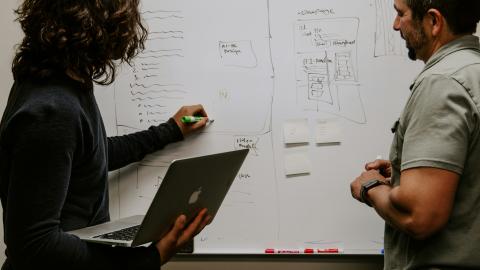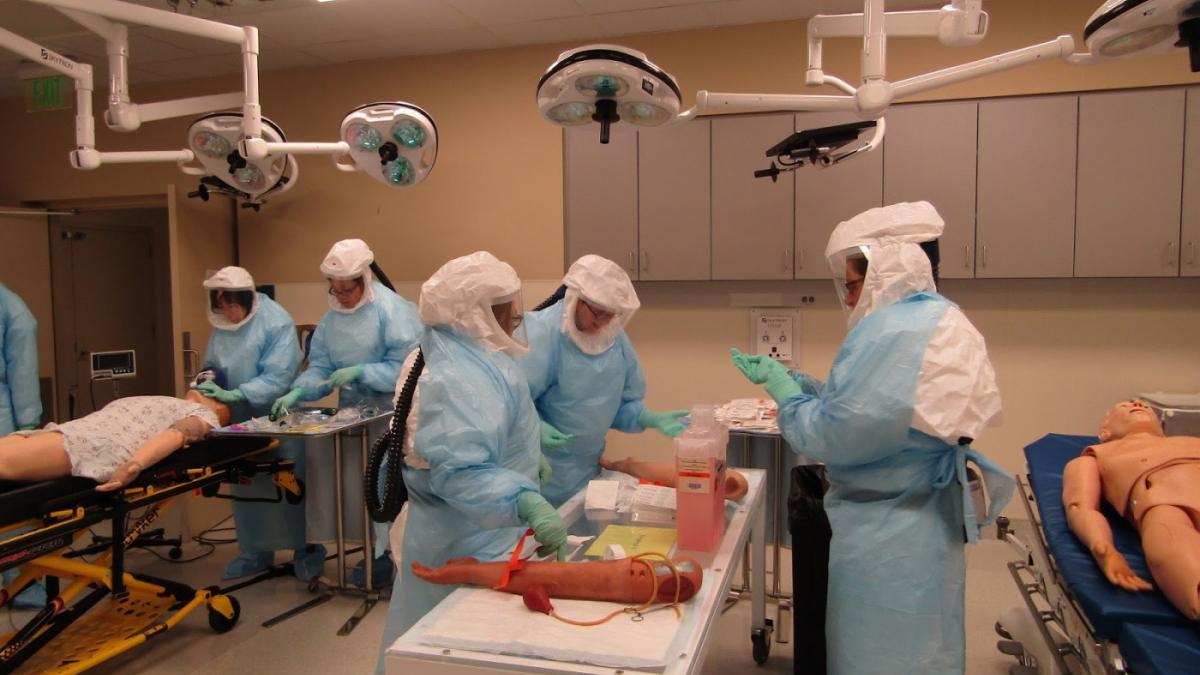
April 8, 2016
On April 6, 2016 the Northwest Center for Occupational Health and Safety hosted a course designed to increase healthcare worker safety when treating patients with highly contagious infectious diseases such as Ebola. Course participants learned about tactics used by Harborview Medical Center during the last outbreak and explored new training technologies that can help to better prepare employees for hazardous situations.
Participants had the chance to experience 3 workshops, during which they experienced different training tools designed to help healthcare workers do their jobs effectively and safely.
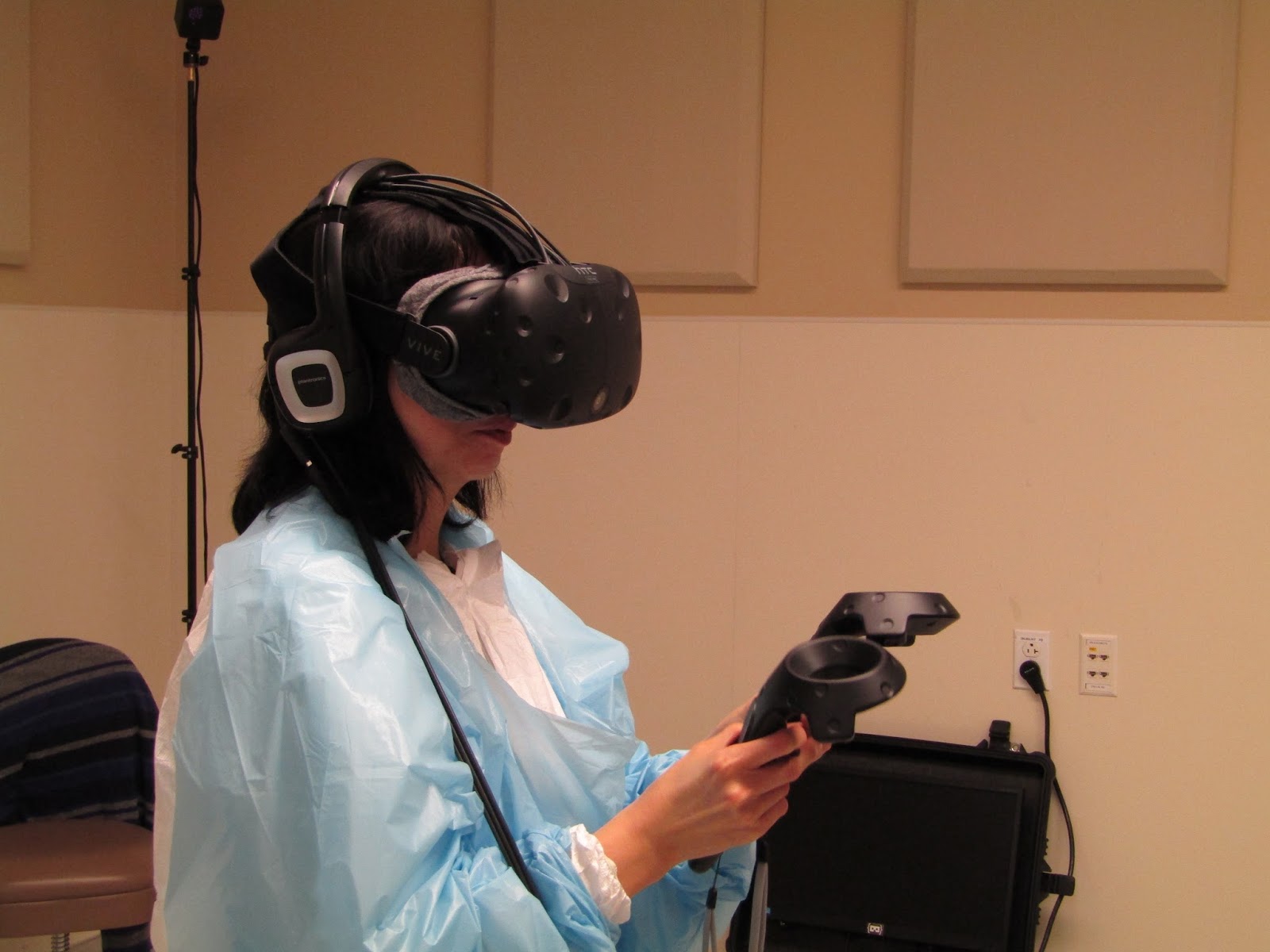
In the first workshop participants worked with Dmitri Bouinov, CEO of Context VR, to explore how virtual reality technology could be used in a healthcare training setting. A sample Google Glasses VR experience was created in which participants had to look around the room for objects they needed in order to treat an infected patient. Participants were presented with questions and could walk around the space viewing more information as they clicked on items.
The course participants also had a chance to put on a full VR helmet and perform surgery on an alien. While not related to the course content, this fully immersive VR experience gave participants the chance to imagine how the technology could be used in a healthcare training setting.
In the VR workshop course attendees learned that nearly anything can be designed into a virtual reality environment. They were also excited to learn that individuals in different geographical locations can work together in the same virtual environment, allowing for collaboration between professionals at different hospitals across the world.
In the second workshop participants donned full PPE and entered a simulation lab where they practiced high risk procedures on specially designed mannequins. They practiced intubation, rectal tube placement, and IV insertion and were faced with simulated bodily fluids and other hazards. Simulation training allows for healthcare workers to get as hands-on as possible and practice different scenarios they might encounter when treating a real patient. Participants learned one the greatest values of simulation training is the ability to de-brief and watch the simulated procedures back. This kind of de-briefing allows workers to identify where they went wrong and where they could have been harmfully exposed had they been treating a real patient.
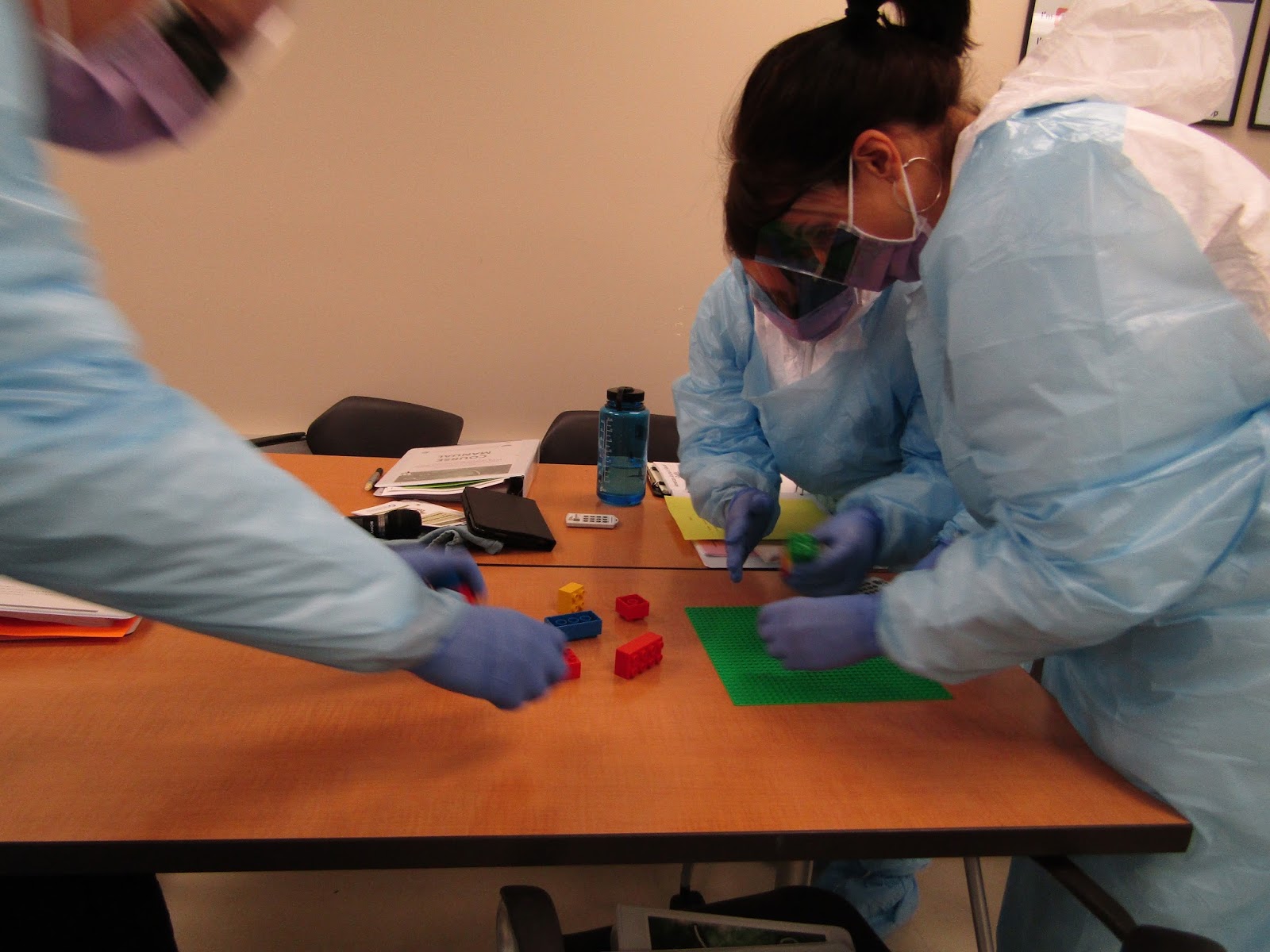
communication & organization during
high stress activities!
The third workshop focused on team communication through a program called Team STEPPS, developed by the WAMMI Institute for Simulation in Healthcare (WISH). Team STEPPS teaches individuals the importance of communication and organization in high stress, high hazard situations. Teams completed stressful tasks together and learned about techniques for improving their outcomes through communication, assignment of roles, and cooperation.
Northwest Center ERC Trainee Kali Turner, MPH Student with the Center for One Health Research, attended the course and was excited to share her experience:
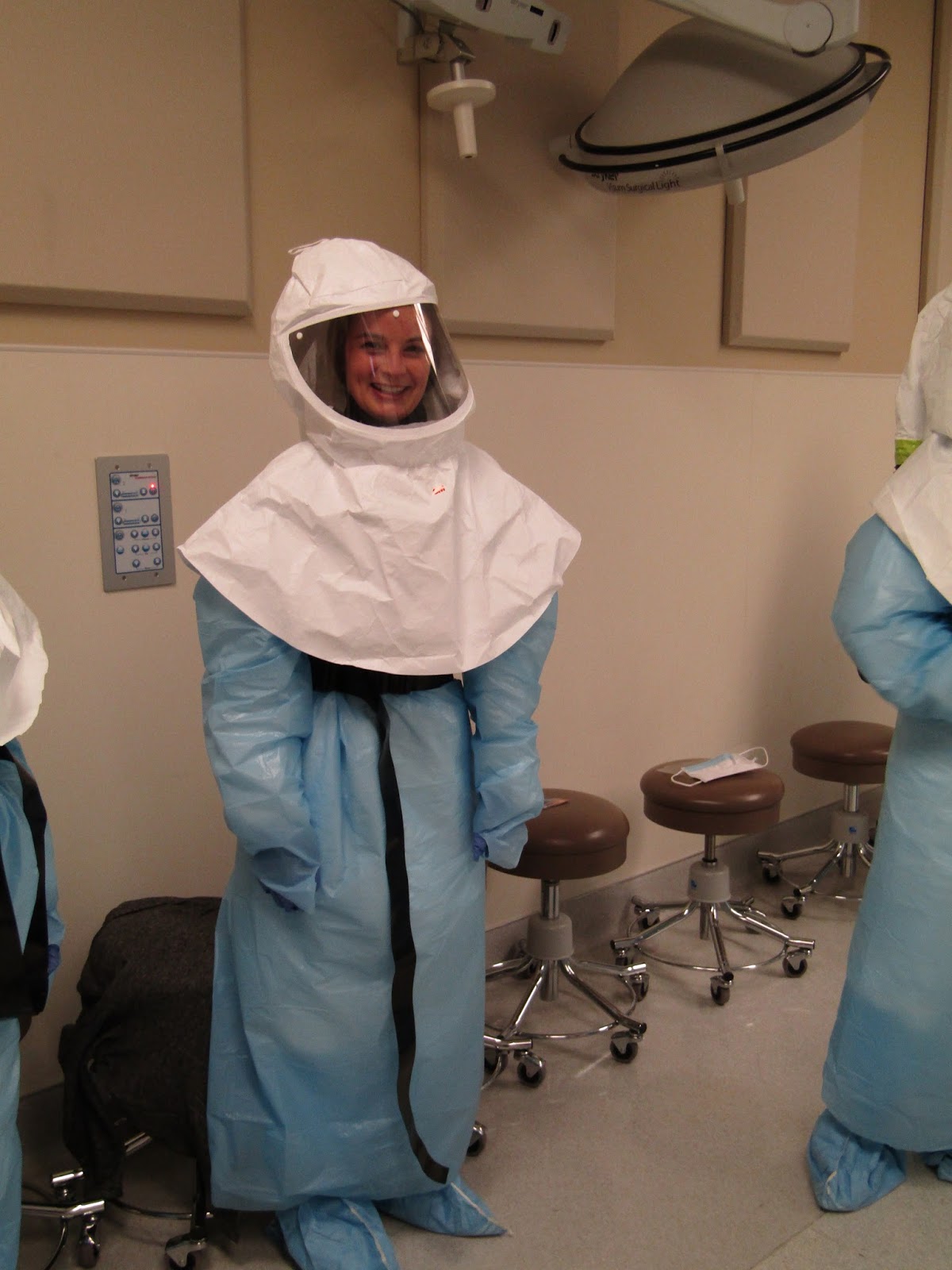
"As a first year MPH student in DEOHS with a background unrelated to public health, but an interest in infectious disease and prevention, this was a perfect opportunity to learn in an interdisciplinary setting. I learned about the challenges and next steps regarding the Ebola response at the international and local level, including improving training through virtual reality and practice. I hope to continue learning about response efforts and prevention for all disasters, including infectious disease outbreaks throughout my time at UW and hope to apply these techniques in a future career. I really enjoyed the diverse presentations and now appreciate the effort it takes to don full PPE for multiple hours in a high pressure situation; it's much harder than it looks!"
You can view presentations and resources from this course! Click here to visit the course resource page.



